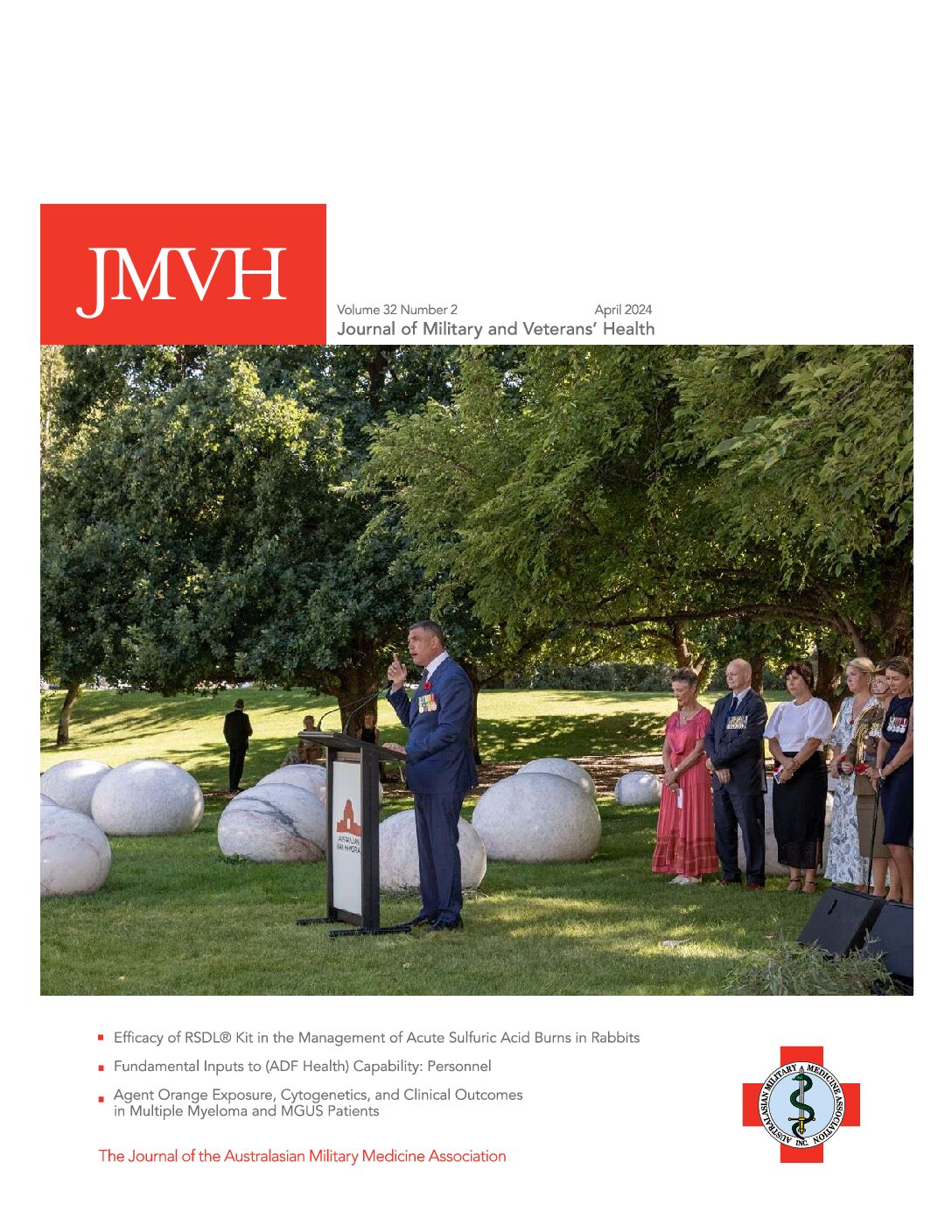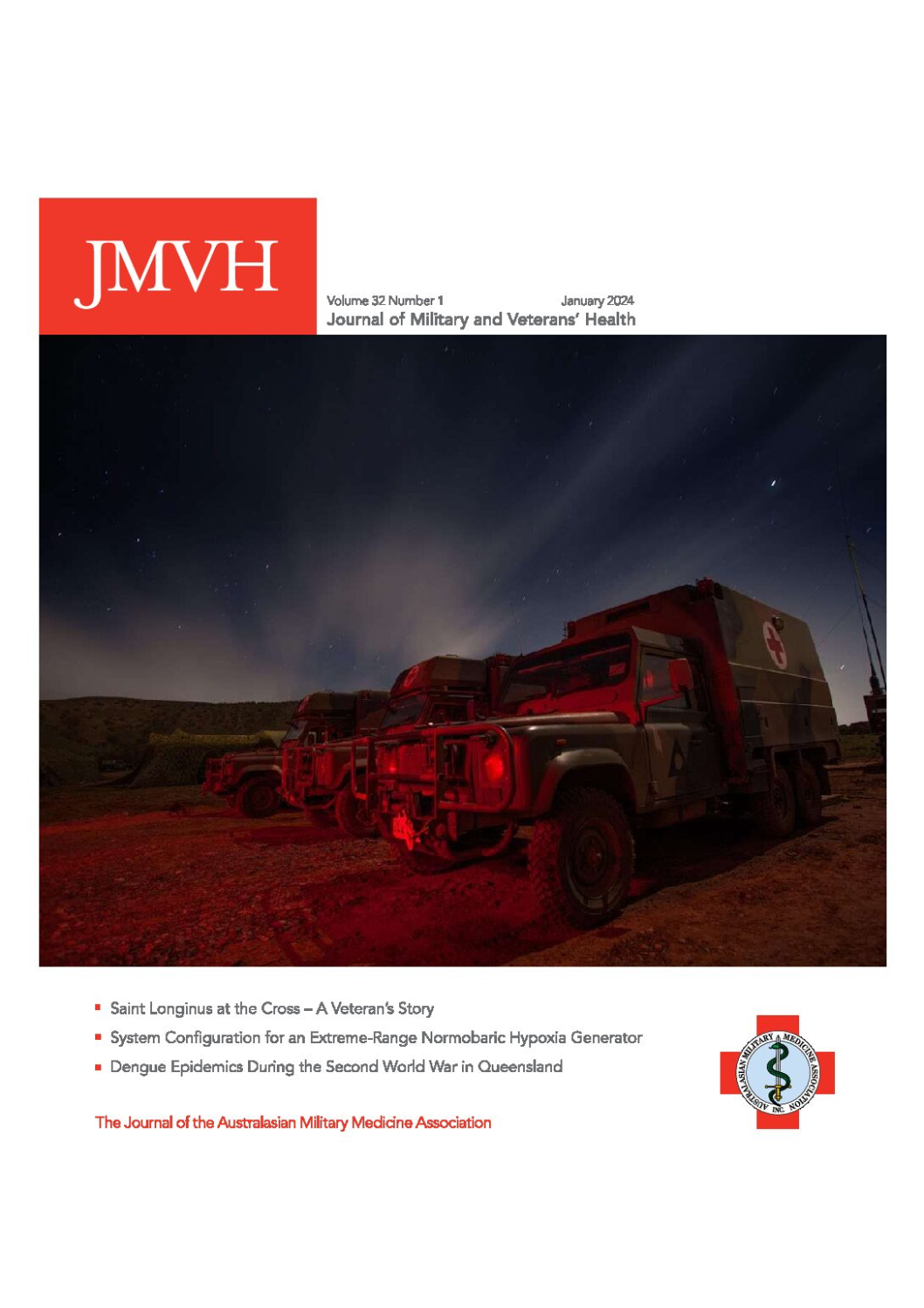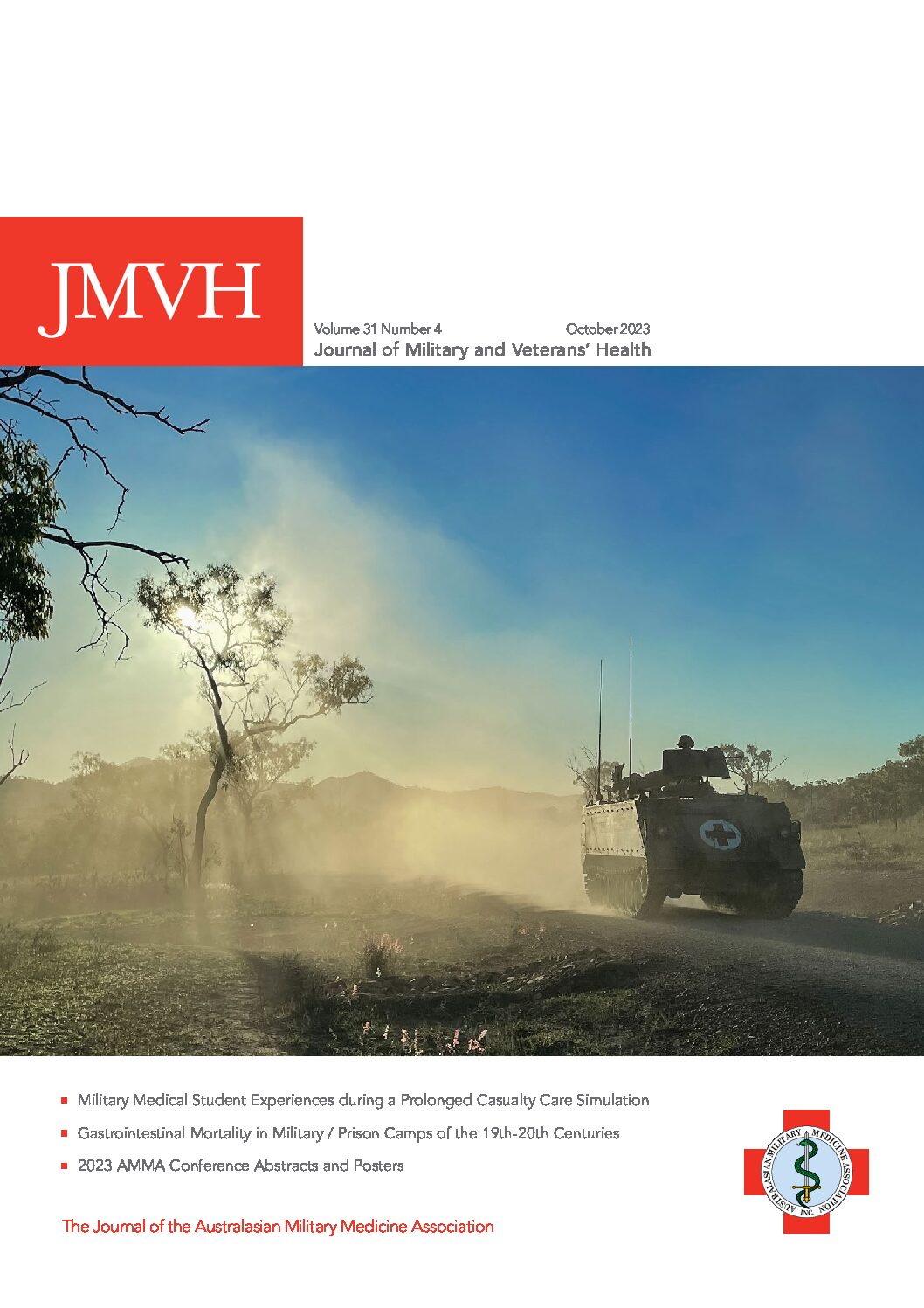C C Hicks, E Bell, D Gray
This paper considers the unique role that serving in the Australian Army may have on shaping the psychological development of emerging adults. Emerging adulthood is defined as the development period from the late teens through the twenties, with a focus on ages 18-25. For most young people in industrialised countries it is suggested that this period involves profound change and significance for the transition from adolescence to adulthood1. It is argued that the unique environment of the army culture has a positive influence on the psychological development of the emerging adult, yet consideration needs to be given as to how this may impact on transition from the Australian Army to the civilian workforce. We combine the lived experience of the authors with existing research with an aim to raise awareness for the need for more research in this area. Specifically, with a focus on supporting the transition from the Australian Army to the civilian workforce.
Fundamentally, the strength of a country is determined by its military prowess and the army culture is shaped by its focus on war. This is nurtured through unique military training that differentiates the combatant from their civilian counterparts2. Therefore, upon joining the military, a recruit very quickly comes to understand the effectiveness of being a part of a team. Army recruits are subjected to the rules and regulations of the military which require the shedding of their former identities. This process in implemented in a way that is unique to military culture where initial and ongoing training comprises of intense challenges within a highly structured program4. Military service during late adolescence enhances educational opportunities, employment progression, psychological wellbeing and life accomplishments2.
The enforced regulations and standards normalize the values of the individual and peer group, aimed at developing mutual respect and understanding, which capitalises on the formation of their sense of identity during this later stage of adolescence development.
This is achieved by creating a strong foundation where an individual is shown the way to behave by the provision of clear instruction with repercussions for non-adherence5,6. As individuality can tend to disrupt and hinder the realisation of this common purpose, each recruit is treated the same regardless of age, gender or socioeconomic status, indoctrinated by military customs and traditions. The key purpose is to create a sense of belonging within the individual as an integral member of the team and that together any objective is possible. Camaraderie is developed and reinforced by the basic premise of trust, loyalty and unity. It fosters a team mentality and faith in peers that allows for an absolute reliance upon each other, which is facilitated by every serviceman completing the same basic training and abiding the same values and ethos. To be successful in the military culture the emerging adult needs to have adapted to what was previously a foreign culture and environment and it is important to look at how this affects a person’s personal beliefs and values. The Australian Army values courage, initiative, respect and teamwork7. Military values are tools used to unite and develop individuals who come from different socio-economic backgrounds. Identity development therefore is significant as it creates a sense of purpose that each person can share to achieve military objectives4.
Undertaking basic training and continuous service within the Australian Army shapes the way in which an individual interprets and interacts with their environment4. Upon completion of basic military training, an individual has been nurtured and socialised into the military culture and hierarchy. Bureaucracy, doctrine and organisational structure all work to preserve social order in the Australian Army by reducing the potential for conflict7. Former Chief of Army, Lieutenant General Morrison AO, referred to the importance of integrity, culture, values and ethical standards in the modern day Australian Army [7]. The hierarchy of the military helps to define the identity of a service person through making explicit the link between a person and the organisation. This is described as a Personal-Organisation (PO) relationship and is characterised by the ability to share similar fundamental characteristics such as values8.
The processes of recruitment, selection, training, promotion, education, performance appraisal and discharge all contribute to building a collective workforce ethic. Career success relies on the application of standard procedures and drills with the expectation of prompt, visible and measurable results. After basic training, continuous service, annual performance appraisal and mandatory advancement within the military, continues to shape the way in which an individual views the world4.
Military service provides emerging adults the opportunity to effectively negotiate age-graded developmental tasks and experience hardships that individuals outside the military may find demanding or never experience3,6. The development required in emerging adulthood is undertaken without close relationships with family, civilian peers and partners. Although the military environment is demanding, many individuals successfully complete initial training, adjust to the environment, handle the difficult situations effectively, and find these experiences rewarding and of value6. The structured military environment forces individuals to come together as a group and form bonds to overcome obstacles as they adjust to a new and structured environment. This shows the importance of intimacy within the military context and how the gains of comradery, friendship and career development can influence an individual’s development.
The importance of strong cohesion, shared values and teamwork regardless of socioeconomic background is evident through research conducted in Australia, Israel and North America3,4,9,10. Service in the Australian Army shapes and changes values and social functioning throughout the lifespan of an individual and enhances educational opportunities, employment progression, psychological wellbeing and life accomplishment3. The Australian Army has a hierarchy that allows people to climb and compete but function effectively within the expected social construct9. The military is structured by divisions, each focused on achieving a specific militarized mandate working towards achieving an overarching strategic objective.
A key feature of successful attainment of the strategic objective is the expectation that every individual will perform at their maximum capability. This culminates in a cohesive workforce that produces a result that would have been unattainable without the individual efforts. In peacetime this is no different to many civilian organisations, however during war time, this is crucial to maintain life and secure a successful mission in dangerous and life changing environments. Therefore a team focus with unfaltering trust in your peers is essential to prevent loss of life and promote everyone arriving home to their families alive and well. There is no room for individual conflicts or disagreements, or spontaneous actions incongruent with the mandate as established by the hierarchy. This can only be achieved through highly structured and focused basic and ongoing training that develops skill, competence and confidence while adopting shared values and an unwavering ethos of trust and loyalty.
The impact of transitioning from a military to civilian workforce upon the individual, is not fully understood and more research is needed, especially considering that the Australian Prime Minister hosted an event in November 2016 with the aim of finding better ways to “use the valuable skills and leadership of former service personnel into our modern economy”10. Given that comprehensive military structured training results in highly skilled individuals who embody courage, initiative, trust, loyalty, adaptability and teamwork, transition should be seamless.
More research using mixed method research to explore the transferable skills when transitioning from the military to the civilian workforce is needed. Research that explores the lived experience of the Army soldier embarking on this transition along with longitudinal studies that are retrospective and prospective. This will promote a greater awareness of the theoretical foundations of the psychological development that occurs within the military culture when considering the emerging adult, and the impact this has on self-identity, transferable lifelong skills and knowledge.






